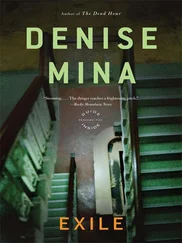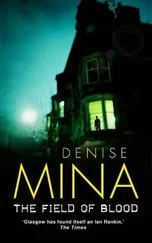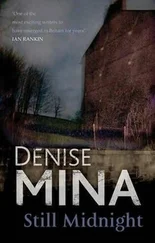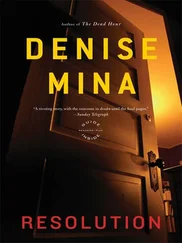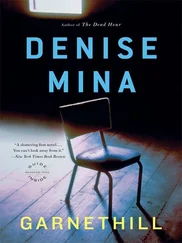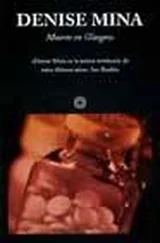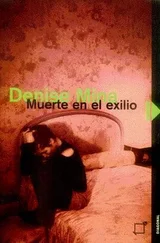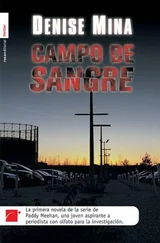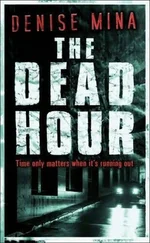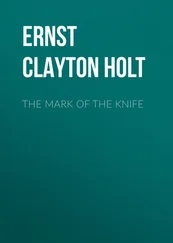They turned a particularly sharp corner on the road and suddenly the soft hills of Ayrshire lay before them, carpeted in vibrant green grass, distant hills dotted with fat cows. The road broadened to two lanes and they were free to hang in the slow lane while a long line of irritable locals sped past, variously flicking their fingers at them or indicating that one of them had a cylindrical item attached to his head. Merki smiled calmly and waved back.
Merki wasn’t giving anything away about the Terry article. She asked him how he knew about Eriskay House and he said that the secretary had told him about that and the folder and Wendy Hewitt, but she knew he wouldn’t be telling her the truth; he was too professional. Fitzpatrick had probably told him. It might be a big fancy house, he said, hopeful for her. It sounded like it, didn’t it? Eriskay House sounded grand.
She let herself imagine for a moment that it was a gorgeous colonnaded country pile, but the only houses she could envisage like that were in Gone with the Wind and a white plantation villa seemed unlikely, even in rich rural Ayrshire. She reminded herself not to get too attached to the house, whatever it was like. She had no real right to a family home when there was a member of the family still living. Terry shouldn’t have left it to her. The folder was enough. Her hand crept into her bag and stroked a corner of it. Terry knew her better than almost anyone else. He had got to know her before she learned to lie, before she had defenses.
The double lanes of traffic merged again into single file and the road began to snake dangerously between two hills.
Suddenly Merki said, “There!” and swung the car to the left, leaving the fast road for a dirt track, overgrown with waist-high grass and wild bushes. Twenty feet on they came to a clearing and he stopped, switching the engine off. The grass was so deep he was afraid to go on, he said; they didn’t want to get stuck.
Scarlett O’Hara wouldn’t have asked a slave to live here. The house was a small Highland cottage, single story with deep small windows and a low front door with a heavy lintel. Brush and grass had grown so high along the walls that they looked as if they were shoring the building up. The roof was punched in on one side and a drainpipe hung down over the front. What really drew the eye, though, was the enormous crack running from the corner of the front door to the roof, edges mismatched, as if the entire building might snap in half like an Easter egg.
They got out. Paddy stood by the car, slightly stunned at the state of the place, while Merki stepped gingerly through the long grass and peered in the windows.
“There’s a piano in there,” he said, looking back at her. “Come and see.”
She wished she hadn’t come. It was so depressing. A family house rotted from a decade of neglect. It would have been lovely once, though, and it wasn’t that far from the city. Terry always had a car; he could have lived here as easily as anywhere else. It made no sense that he chose to live in grimy bed-sitters when he had this house fifteen minutes away.
“Come and see.”
Merki watched her reaction as she peered in the window, observing her so closely she wondered if he was going to write about it. “Fuck off,” she said and he turned away, urinal polite.
The windowsill was half a foot deep. She wiped the frosting of dust from the glass and looked inside. Storm shutters were propped open and beyond them the room was small and low. A piano was listing slightly against the back wall, the floor sinking into the dirt below. Old cottages didn’t have foundations-they were built straight into the soil, the weight of the walls keeping them upright-but it meant that damp took over if they weren’t kept warm, and this house hadn’t been warm for a long time. The fitted carpet on the floor looked warped and a tidal mark cantered across the back wall at head height. The wallpaper was faded and sliding down the wall at the corner. Pink with a pattern of disembodied baskets of flowers.
Merki was at her shoulder. “What do ye think?”
She stepped back and looked at him. “Are you going to write about this?”
“Mibbi.” He’d have denied it if he was.
She looked at him, wondering. “Merki, why are we here?”
He shrugged, looked away, shrugged again. “Dunno. Background?”
He was up to something. Definitely. He was doing innocent but he’d kept checking his watch all the way up here and now a smug smile was tugging at the corner of his mouth. He didn’t know about Kevin or he would have mentioned it. She remembered the McBree and Donaldson clippings in her bag, the dates on the front of them showing they had last been looked at months ago. Merki didn’t know anything about McBree either. But then she hardly knew anything about him herself.
“Let’s look round the side,” she said.
They waded through the damp grass in single file. At the back the land opened up into a long garden, now choked with a decade of neglect. Large trees hid the road but they could hear it, the cars and lorries speeding past. At the far end was the orchard where his parents had stood under a tree for a photograph. Green baby apples the size of cherries were just appearing on the trees but the trunks and some branches had been colonized by thick, waxy ivy. She couldn’t see the exact tree they had stood under but she was sure it was here. It must have been a lonely place for an only child to grow up.
The kitchen was bare and basic, the table covered in dust and mouse droppings. A cardboard box sat on a dresser, rotting in the damp, ripped by mice making a home. There didn’t seem to be a cooker. It was in the country and it wasn’t council but it was modest. She had always assumed Terry came from money, but she suspected everyone of that because she didn’t herself.
She stood back and saw that Merki was looking at another crack in the wall, this one beginning above the kitchen window.
“Let’s go home.”
But Merki was reluctant. He stepped over to the back door and wiped the dirt from the keyhole. “I can jimmy this. Want to go inside?”
“Nah.”
“No bother,” he said and got a ring of L-shaped metal sticks from his pocket.
“Merki, I can’t be bothered, there’s nothing to see in there but mice.”
He stopped, checked his watch, did some mental calculations and nodded. “Aye, all right.”
Head down, he led the way back to the car.
She lit a cigarette when they were inside and offered him one but he declined. “What are you checking your watch for all the time?”
He shrugged, flinging an arm over the back of the seat to reverse out to the mouth of the driveway, keeping to the tracks in the flattened grass they had made on the way in.
“Are you waiting for something to happen? Was someone supposed to meet us here?”
He stopped the car, looking out at the traffic speeding past on the road.
Just three feet away cars were going past so fast she couldn’t make out the drivers’ faces. Behind them, coming from Glasgow, a lorry took the blind turn in the road and hurtled towards them, correcting his trajectory at the last minute and narrowly avoiding clipping Merki’s boot.
“I want to go back that way but they won’t…” He pulled the car forward to the edge of the tarmac. “Just… go, I suppose.”
It was terrifying: Merki shot forward just as a Range Rover belted around the corner at sixty. His Nissan had no power and he couldn’t speed up to get clear. The Range Rover was on top of them, brakes screeching, lights flashing in the rearview.
It was at that moment that Paddy realized in a wash of horror why Terry Hewitt didn’t live here: when he was seventeen years old his parents had died in a car crash and they had died on this road, somewhere, on a corner with dead flowers. He had told her about it when she was young, when she told him about Patrick Meehan and all her secret shame about the case. He heard her but she didn’t take in what he was saying: her family didn’t own a car and the crash seemed glamorous to her then, Jayne Mansfield-esque. She’d envied his freedom.
Читать дальше

